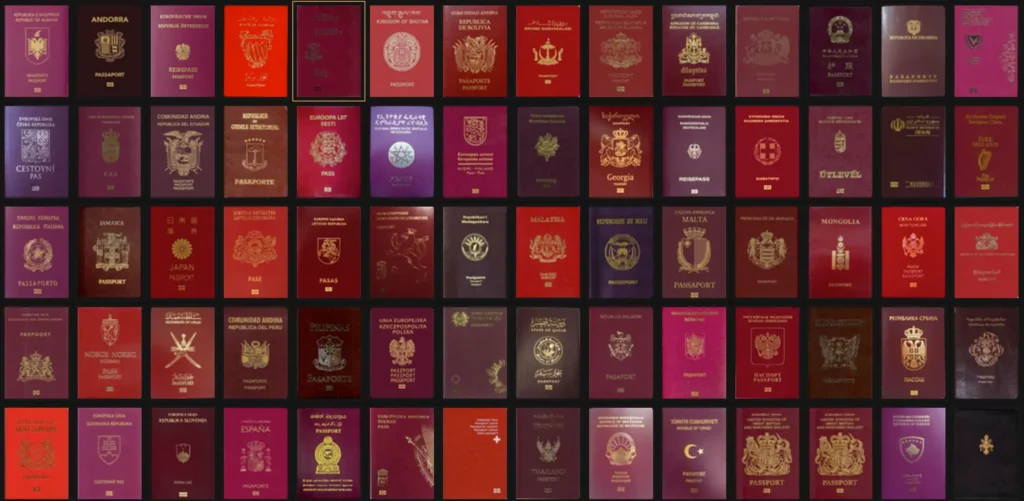Contents
Introduction:
China, with its rich history and vibrant culture, stands as a global economic powerhouse and a hub for technological innovation. For foreigners planning to visit mainland China, understanding the use of passports and related regulations, including intellectual property protection, is crucial. A passport is not just a travel document; it plays a vital role in various activities such as visa applications, company registration, and mobile number authentication. Proper knowledge of how to use a passport and handle related procedures is essential for ensuring a smooth experience while living and working in mainland China. This guide aims to provide practical information to help foreigners navigate work, travel, business activities, and legal matters efficiently in mainland China. This article will delve into various aspects of using passport in China for foreigners.
Part One: Passport and Visas in China
Latest Information: Foreigners Passport Coming to China
According to the latest data, the number of foreigners visiting China significantly increased in 2024. In the first quarter of 2024, China’s immigration authorities recorded over 141 million entries and exits, including 13.07 million entries and exits by foreigners, a 305.2% increase from the same period last year [China Daily]. This growth reflects a series of measures implemented by China post-pandemic to facilitate the entry and stay of foreigners, including easing port visa application requirements and simplifying visa application documents in China.
Moreover, China has implemented visa-free policies for tourists from 15 countries, allowing nearly 990,000 foreign tourists to enter China visa-free, accounting for over 60% of the total visitors. For example, starting in July this year, China resumed the 15-day visa-free policy for ordinary passport holders from Singapore and Brunei, applicable for business, tourism, and family visits.
Routine Use of Passport in China for Foreigners
Foreigners entering mainland China must hold a valid passport issued by their home country. Upon arrival, customs officials will stamp the passport with an entry stamp, usually including the entry date, duration of stay, and visa type. Different types of visas determine the length of stay and permissible activities for foreigners in mainland China. Here are some common types of visas:
- Tourist Visa (L Visa): The most common type of visa, suitable for individuals coming to mainland China for tourism. Tourist visa holders can typically stay in mainland China for 30 to 90 days, depending on the visa issuance. Tourist visas generally do not permit holders to engage in any form of work.
- Business Visa (M Visa): Suitable for individuals coming to mainland China for business activities or attending meetings. Business visa holders can stay in mainland China for a period to conduct business negotiations, sign contracts, or participate in trade exhibitions. The validity and duration of stay are usually based on specific business needs.
- Work Visa (Z Visa): This visa type is for legal employment in mainland China. Applying for a work visa usually requires first obtaining an employment contract and work permit from a Chinese employer. The work visa allows the holder to reside and work long-term in mainland China, typically valid for one year or longer, depending on the work contract duration.
- Student Visa (X Visa): Student visas are divided into X1 and X2 types, suitable for long-term and short-term studies, respectively. X1 visa is for students studying long-term in mainland China, usually valid for more than six months; X2 visa is for short-term studies, typically not exceeding six months. Applying for a student visa requires providing an admission notice from a Chinese educational institution.
- Family Visa (Q Visa): Q1 visa is for foreigners visiting family members in mainland China for the long term, such as Chinese citizens or permanent residents. Q2 visa is for short-term family visits, usually not exceeding 180 days. Applying for a family visa requires providing proof of family relationship, such as a marriage or birth certificate.
Additionally, the use of passports by foreigners in Hong Kong and Macau differs slightly. Foreigners with valid passports can enter Hong Kong and Macau visa-free or obtain a visa on arrival, depending on their nationality and purpose of visit. During their stay in Hong Kong and Macau, foreigners must also comply with local immigration regulations and visa requirements.
Part Two: Passport in China: Intellectual Property Registration
When foreigners register companies, trademarks, copyrights, or patents in mainland China, a passport is an essential document. Here is a detailed introduction to the specific requirements for using passports in these registration processes.
- Company Registration: When registering a company in mainland China, foreigners must provide a color copy of their passport. This is to verify identity and ensure the applicant has legal registration qualifications. During the registration process, foreign investors also need to confirm their legal representative identity with the State Administration for Market Regulation (SAMR). This process verifies the authenticity of the passport and ensures the accuracy of all registration information. Additionally, a passport copy is necessary for obtaining a business license and tax registration.
Detailed Steps: Applicants first need to prepare a passport copy, proof of residence, and an investment plan. Next, submit the registration application to SAMR and undergo a review. After the review is approved, applicants need to obtain a business license at a designated location and complete tax registration within the specified time.
- Trademark Registration: When registering a trademark in mainland China, foreigners must submit a color copy of their passport. This is necessary for both individuals and companies. Trademark registration protects the company’s brand and ensures the legal use and protection of the trademark in mainland China. Submitting a passport copy ensures the legality and authenticity of the applicant’s identity. The Trademark Office will review these documents to prevent trademark infringement and false registration.
Detailed Steps: Applicants need to prepare a trademark sample, a passport copy, and application forms. Then, submit the application to the Trademark Office and pay the required fees. The Trademark Office will review the application and publish an announcement after approval. If no objections are raised during the announcement period, the trademark will be officially registered.
- Copyright Registration: Copyright registration protects the creator’s original works from infringement. Whether it is an individual creator or a legal entity, a color copy of the passport is required when registering copyrights in mainland China. This ensures the legality of the copyright applicant’s identity and the legal effect of all copyright documents. When applying for copyright, detailed information about the work and proof of the creation process must also be provided.
Detailed Steps: Applicants need to prepare work samples, a passport copy, and copyright application forms. After submitting the application to the Copyright Office, the office will review the application. If the review is approved, applicants will receive a copyright certificate, protecting their work’s legal rights.
- Patent Registration: The patent registration process also requires a color copy of the foreign applicant’s passport. This ensures the Patent Office can verify the applicant’s identity and nationality. Patent registration protects inventions and innovative achievements, and submitting a passport copy is a necessary step to ensure the patent application is legal and effective. Patent applications usually include detailed technical descriptions and claims, undergoing a rigorous review process.
Detailed Steps: Applicants need to prepare technical descriptions, claims, a passport copy, and patent application forms. After submitting the application to the Patent Office, the office will conduct a preliminary examination and substantive examination. If the review is approved, applicants will receive a patent certificate, enjoying patent rights.
Part Three: Protecting and Replacing Passport in China
Given the frequent use of passports by foreigners in mainland China, protecting this important document is crucial. However, if the passport is lost or stolen, follow these steps:
- Report to the Local Police: If the passport is lost or stolen, the first step is to immediately report the loss to the nearest police station. They will issue a loss report, which is crucial for reapplying for the passport and visa. When reporting, provide a detailed description of the passport loss and personal identification. This proof document is essential for the next steps and is required for applying for a new passport.
- Contact the Embassy or Consulate: After reporting to the police, contact the embassy or consulate of your home country in China as soon as possible. The embassy will assist in applying for a replacement passport and provide necessary support. When applying for a new passport, you need to provide the police loss report and other required documents, such as identification and passport photos. The embassy will usually help arrange emergency travel documents for urgent use.
Detailed Steps: First, make an appointment for the embassy’s emergency passport service by phone or online. Upon arrival at the embassy, submit all required documents and fill out the relevant forms. The embassy usually processes the application within a few days and issues a new passport or temporary travel document.
- Apply for a Replacement Visa: After obtaining a new passport, you must apply for a replacement visa from the Chinese immigration department. This step is crucial because the new visa allows you to continue staying legally in mainland China. When applying, submit the new passport, loss report, and other related documents. The process of replacing a visa may take some time, so it is advisable to start this procedure as early as possible.
Detailed Steps: Visit the local entry-exit administration bureau, submit the new passport, loss report, and visa application form. After paying the required fees, wait for the visa approval. Upon approval, a new visa will be issued on the new passport.
Protecting the passport is not only for convenience in daily use but also to ensure adequate measures in emergencies. Knowing the steps to handle lost passports helps foreigners quickly resume normal life and work. Additionally, foreigners are advised to keep their passports safe during travel or residence, avoiding placing them in insecure places.
Conclusion:
In conclusion, the passport is an essential document for foreigners in mainland China, whether for tourism, business, or long-term residence. It is crucial for entry, business activities, and intellectual property protection. Therefore, protecting the passport and knowing the steps to handle its loss are vital for ensuring smooth living and working in mainland China. GWBMA hopes this article provides valuable information and assistance to foreigners living and working in mainland China. Welcome, our friends!




